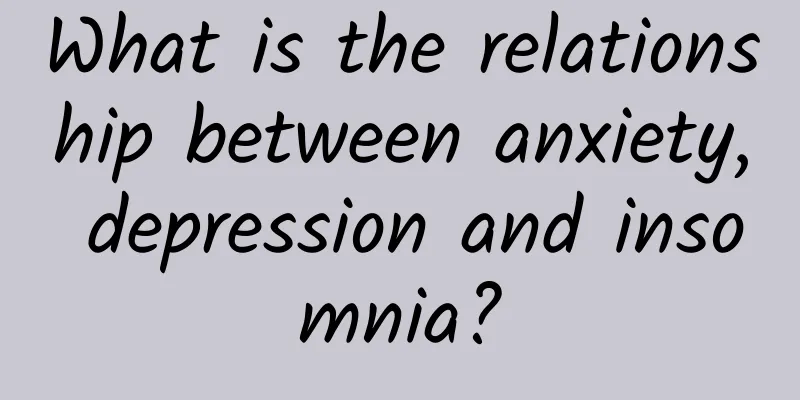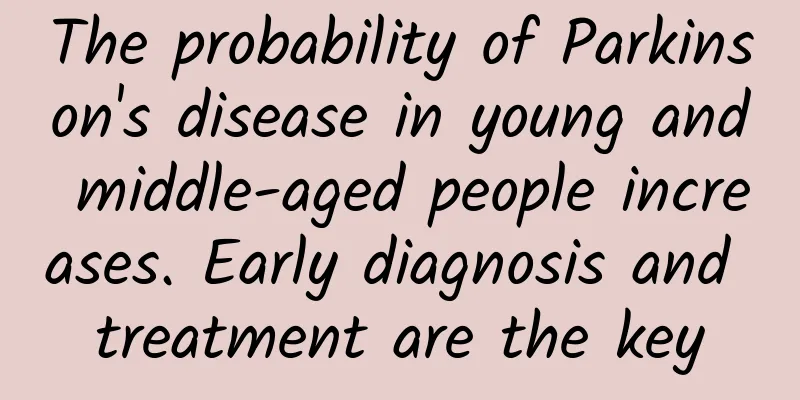What is the relationship between anxiety, depression and insomnia?

|
The interconnectedness between anxiety disorders, depression, and insomnia is reflected not only in their shared symptoms, but also in their close links in biological and psychological mechanisms. These three mental health problems often cause and effect each other, forming a complex cycle in which one problem may lead to the development of the other two, and vice versa. For example, long-term insomnia may lead to the emergence of depressive symptoms, while depression and anxiety further exacerbate insomnia problems. Their comorbidity suggests that all three aspects need to be taken into account during diagnosis and treatment to achieve a more comprehensive and effective treatment effect. Treatments for these three conditions often include medication, psychotherapy, and lifestyle adjustments to comprehensively address their complex connections and mutual influences. 1The relationship between anxiety, depression, and insomnia 1.1 Anxiety and Insomnia Addressing sleep problems in anxiety disorders is not only key to alleviating current symptoms, but is also an important step in preventing long-term effects on mental health. To this end, common treatments include cognitive behavioral therapy (CBT), particularly cognitive behavioral therapy for insomnia (CBT-I), which helps patients identify and change negative thought patterns about sleep and develop better sleep habits. In addition, relaxation techniques such as deep breathing, meditation, and progressive relaxation training are often recommended to reduce the brain's alert state and help people with anxiety disorders fall asleep more easily. Equally important, physical activity and avoiding stimulating food or drink may also help improve sleep quality, thereby reducing anxiety symptoms. This suggests that a comprehensive treatment strategy is necessary to fully address the complex relationship between sleep problems and anxiety. 1.2 Depression and Insomnia In view of the complex relationship between depression and sleep disorders, researchers emphasize that effective management and treatment of insomnia is crucial to breaking this vicious cycle. Through a variety of treatment methods, such as cognitive behavioral therapy (CBT-I), medication, and lifestyle adjustments, patients' sleep quality can be effectively improved. For example, CBT-I improves sleep by identifying and changing negative thinking patterns and behavioral habits that lead to insomnia. At the same time, patients may need to use antidepressants under the guidance of a physician to regulate physiological mechanisms and improve sleep. In addition, adjustments to daily habits, such as ensuring adequate daytime activities, avoiding heavy physical activities at night, and reducing caffeine intake, are also very important for restoring healthy sleep patterns. These comprehensive strategies together build a supportive treatment framework aimed at reducing depressive symptoms and improving quality of life. 1.3 Interaction between anxiety and depression The interrelationship between anxiety and depression is profound and complex, and the symptoms and treatment strategies of the two may overlap to some extent. For example, both diseases may involve an imbalance of neurotransmitters, especially serotonin and dopamine. In addition, in terms of treatment, cognitive behavioral therapy (CBT) and drug therapy (such as antidepressants or antianxiety drugs) are often used to treat both diseases. Understanding the interaction between these two mood disorders can help doctors more effectively develop personalized treatment plans and provide comprehensive treatment for patients' specific symptoms and needs, thereby improving the effectiveness of treatment and the quality of life of patients. Intervention in common triggers of anxiety and depression, such as stress management, is also an important part of the treatment process that cannot be ignored. 2. Coping strategies It is particularly important to adopt a diversified and holistic treatment approach to address the interactive relationship between anxiety, depression and insomnia. Cognitive behavioral therapy (CBT) and cognitive behavioral therapy specifically designed for insomnia (CBT-I) are very effective psychotherapy approaches for treating these complex conditions. They help patients identify and change negative thoughts and behavior patterns, thereby improving sleep quality and reducing symptoms of anxiety and depression. At the same time, medication is also a commonly used option, which can provide immediate relief from symptoms by adjusting the levels of neurotransmitters in the brain. In addition, lifestyle adjustments, such as regular physical activity, a balanced diet and adequate sleep, are also effective in maintaining mental health and emotional stability. Regular exercise not only helps improve physical health, but also promotes the balance of the endocrine system and improves overall mental health. In addition, patients should be encouraged to participate in support groups or psychotherapy, which can provide emotional support and reduce the loneliness caused by psychological disorders. For more effective treatment, doctors and therapists often recommend a multidisciplinary approach, which includes collaboration with mental health professionals, doctors, and, if necessary, nutritionists or sports coaches to develop a personalized treatment plan for the patient's unique needs. Through the application of these comprehensive strategies, the intersection between anxiety, depression, and insomnia can be more comprehensively addressed, improving treatment outcomes and the patient's quality of life. In summary, the relationship between anxiety, depression, and insomnia is complex. They can promote each other or be the result of each other. Understanding their interactions can help us better diagnose and treat these mental health problems, ultimately improving the quality of life of patients. With the help of professional medical staff and effective personal measures, people can effectively manage these diseases and return to a normal life. Author: Xing Siqi Laiyuan County Hospital, Hebei Province |
<<: Interstitial lung cannot be ignored
>>: Causes and nursing measures for insomnia in the elderly
Recommend
Leucorrhea transparent a little light yellow drawing
If the discharge is transparent, a little light y...
What to do if you can't forget a broken heart? What does a man do after a breakup?
Most breakups happen because the other person has...
Are breast cysts serious?
It is well known that the predecessor of a tumor ...
Abdominal pain 11 days after delivery
After giving birth, women are relatively weak, so...
Color Doppler ultrasound shows the umbilical cord is around the neck
After a girl becomes pregnant, she must follow th...
How to get children's vaccines at their own expense? Save these suggestions
Author: Fang Xiao, The First Affiliated Hospital ...
I have a small polyp on my genitals, it doesn't hurt or itch
Small polyps appearing in female genitals may be ...
Can carotid artery plaques really be reversed? To reverse plaques, certain conditions must be met
A friend asked Huazi that she had been taking sta...
What does bayberry taste like? How to store the leftover bayberries?
Bayberry, also known as Shengshengmei and Baidime...
What causes urinary tract infection in women?
Urinary tract infection is an inflammation caused...
How to make pig's trotter soup for pregnant women
Drinking pig's trotter soup is a very good ch...
How to treat gynecological trichomoniasis
As women age, they will develop some diseases, an...
Normal body fat for women
Women's physical health is very important, bu...
What causes vaginal itching and bleeding?
Vaginal itching and bleeding is a common symptom....
What to do if vaginal discharge decreases?
Women are delicate flowers that need careful care...









